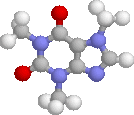

| Strona główna |
| Zespół |
| Badania |
| Aparatura |
| Seminaria |
| Publikacje |
|
Nasze konferencje |
|
Aktywność konferencyjna |
| Projekty |
| Programy |
|
Najbliższe wydarzenia |
| Linki |
| Kontakt |
|
|
|
od 2020-09-20 |

Authors: Andrzejewska W.J., Wilkowska M., Peplińska B., Kozak M. |
Title: Selected polycationic surfactants as siRNA carriers for gene therapy |
Source: Biophysical Journal |
Year : 2018 |
So far many drug delivery systems for transfer of nucleic acids in gene therapy have been proposed but there is no universal system for transfer of genetic material into cells. The largest problem in the design of new nucleic acids delivery vehicles is finding a carrier which fulfill such criteria as: stability in complexes with nucleic acids, non-toxicity, non-immunogenicity, ability to safe degradation and easy preparation protocol. |
|
|
Zaktualizowano: podstrony 2025-12-13 / bazę danych: 2025-12-14 by Webmaster: Zbigniew Fojud